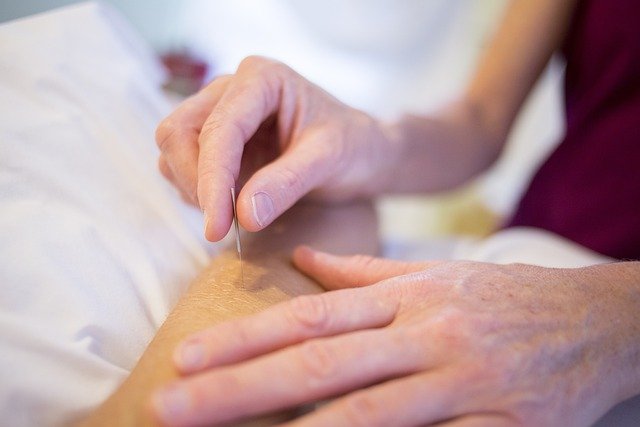Participating in Clinical Trials for Dental Implants: What You Need to Know
Dental implant trials help patients access advanced tooth replacement procedures while contributing to research. These clinical trials often provide expert care using the latest techniques, offering an opportunity to restore your smile with professional oversight.

What are Clinical Trials for Dental Implants?
Clinical trials for dental implants are research studies designed to evaluate new implant technologies, materials, or techniques. These trials aim to improve existing implant procedures or develop innovative approaches to tooth replacement. Participants in these studies receive dental implants as part of the research protocol, often at reduced or no cost. The trials are conducted by dental professionals and researchers in controlled settings, ensuring patient safety and adherence to strict scientific standards.
How to Qualify for a Dental Implant Trial
Qualifying for a dental implant trial involves meeting specific criteria set by the researchers. These criteria may include:
-
Age requirements: Most trials have age restrictions, typically seeking adults over 18.
-
Overall health: Participants should be in good general health without conditions that could interfere with healing.
-
Oral health: Specific dental conditions may be required, such as missing teeth or sufficient bone density for implant placement.
-
Commitment: Willingness to attend follow-up appointments and adhere to study protocols.
To determine if you qualify, you’ll need to undergo a screening process. This usually involves a dental examination, medical history review, and possibly x-rays or other imaging tests. The research team will assess your suitability based on the study’s specific requirements.
Benefits of Volunteering for a Dental Implant Trial
Participating in a dental implant trial can offer several advantages:
-
Access to advanced treatments: You may receive innovative implant technologies not yet available to the general public.
-
Expert care: Trials are conducted by experienced dental professionals and researchers.
-
Cost savings: Many trials offer implants at reduced or no cost to participants.
-
Contribution to science: Your participation helps advance dental research and improve future treatments.
-
Close monitoring: Participants receive frequent check-ups and detailed follow-up care.
It’s important to note that while these benefits are significant, clinical trials also come with potential risks and uncertainties. Always discuss the pros and cons with the research team and your personal dentist before committing to a trial.
How to Find and Volunteer for a Dental Implant Trial
If you’re interested in participating in a dental implant trial, here are steps you can take:
-
Search clinical trial databases: Websites like ClinicalTrials.gov list ongoing studies, including dental implant trials.
-
Contact local dental schools: Many universities conduct dental research and may have ongoing implant studies.
-
Ask your dentist: Your regular dentist may be aware of local trials or be able to refer you to participating clinics.
-
Check with implant manufacturers: Some dental implant companies conduct their own clinical trials and may be seeking volunteers.
Once you find a potential trial, contact the study coordinator for more information. They can provide details about the trial’s purpose, requirements, and next steps for volunteering.
What to Expect During a Dental Implant Trial
Participating in a dental implant trial typically involves several stages:
-
Screening: Initial evaluation to determine your eligibility.
-
Informed consent: Detailed explanation of the trial, including potential risks and benefits.
-
Pre-treatment assessment: Comprehensive dental examination and planning.
-
Implant placement: Surgical procedure to place the dental implants.
-
Follow-up appointments: Regular check-ups to monitor healing and implant integration.
-
Data collection: Researchers will gather information about your experience and implant performance.
-
Long-term follow-up: Some trials may require periodic check-ins for several years after implant placement.
Throughout the trial, you’ll work closely with the research team, who will guide you through each step and address any concerns you may have.
Considerations Before Joining a Dental Implant Trial
While dental implant trials offer many benefits, it’s crucial to carefully consider your decision:
-
Understand the risks: All medical procedures, including experimental ones, carry potential risks.
-
Time commitment: Trials often require multiple appointments and long-term follow-up.
-
Potential costs: While many trials offer free or reduced-cost implants, there may be associated expenses.
-
Uncertainty of outcomes: As with any research, results are not guaranteed.
-
Impact on future treatment: Participating in a trial may affect your eligibility for other dental procedures.
Always discuss your participation in a clinical trial with your regular dentist and carefully review all information provided by the research team before making a decision.
Dental implant clinical trials present a unique opportunity for individuals seeking tooth replacement solutions. By participating, you not only gain access to advanced treatments but also contribute to the advancement of dental science. However, it’s essential to approach these trials with a clear understanding of the process, potential benefits, and considerations involved. With careful consideration and guidance from dental professionals, participating in a dental implant trial could be a rewarding experience that leads to a restored smile and improved oral health.
This article is for informational purposes only and should not be considered medical advice. Please consult a qualified healthcare professional for personalized guidance and treatment.




